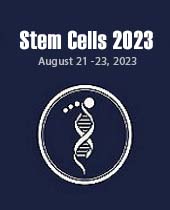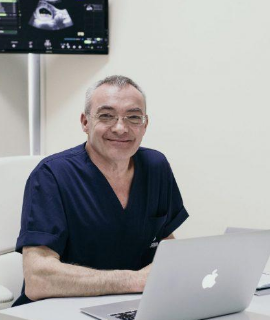Title : Cell&gene therapy for improving impaired gametogenesis
Abstract:
One of the many infertility causes is impaired gametogenesis. Premature ovarian insufficiency (POI) and azoospermia are among the most frequent causes of female and male infertility, respectively. POI is characterized by deprivation of normal ovarian function due to a decrease in the number of follicles, leading to amenorrhea in 1% of women younger than 40. Azoospermia is characterised by the absence of sperm in a man’s ejaculate. The background of these diseases is multifactorial, involving interaction between genes and various non-genetic factors, such as autoimmunity, genital infections, exposure to chemicals, or injuries to the genital tract.
Although significant improvements in infertility management with Assisted Reproductive Technologies (ARTs) have been made, certain conditions do not respond appropriately to the existing treatments. Regenerative medicine, as an innovative therapeutic approach, appears as a promising solution either as the first choice in infertility treatment or as an adjunct therapy.
Cell-based therapy involves autologous or allogenic products, such as platelet-rich plasma (PRP) and mesenchymal stem cells (MSCs). PRP is highly concentrated plasma enriched with platelets containing many growth factors and inflammation mediators. The activation of these molecules modulates cell proliferation, tissue remodelling, angiogenesis, and inflammatory response. MSCs are adult stem cells that originate from mesoderm and, in addition to their ability to self-renew, they can differentiate into a variety of other cell types. They achieve their effect mainly through secreting molecules in free form or in the form of extracellular vesicles – MSCs-derived exosomes. These substances support the microenvironment and encourage the proliferation of existing progenitor cells. Hence, MSCs could revive folliculogenesis, activate dormant follicles and stimulate steroidogenesis. In the testes, the bioactive molecules released by MSCs may provide additional support for Sertoli cells and enable adequate spermatogenesis.
Moreover, combining ARTs techniques and biological therapy may lead to advancements in infertility treatment. In vitro maturation (IVM) is an experimental method gradually introduced into clinical practice. The supplementation of IVM mediums with PRP may increase the oocyte developmental competence and subsequently enhance the fertilization and pregnancy rates, which is an option for women who are not candidates for conventional IVF.
With the development of gene therapy, many conditions with a genetic basis are becoming treatable. Cell&Gene therapies represent an even more progressive therapeutic approach, consisting of cell isolation, repair of defective genes via a gene editing system, usually CRISPR-Cas9, and reinjection into the patient. However, these therapies have been used in experimental settings so far.
In summary, regenerative medicine represents a novel therapeutic strategy that aims for future research due to its enormous potential to cure the disease and improve the overall quality of life.


